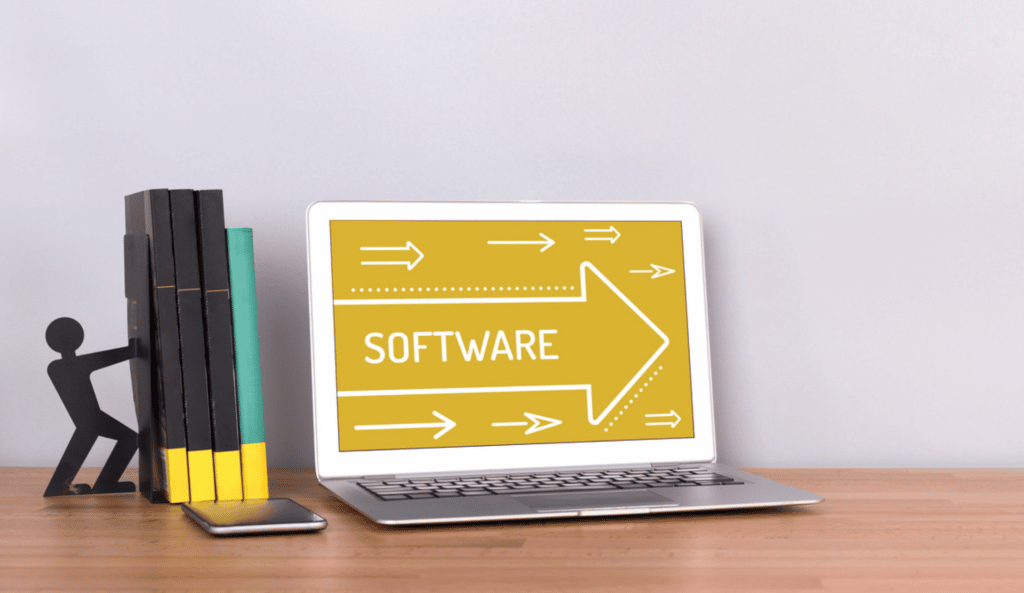15 Tax Deductions for Bloggers: How to Keep More of Your Hard Earned Profits

When you buy something through one of the links on our site, we may earn an affiliate commission.
As a blogger, you're probably more focused on your work than on your taxes. However, you're running a business, so it's important to understand the variety of tax deductions for bloggers available to you.
Educating yourself on what you can and can't deduct can save you a lot of money come tax time, which means more money in your pocket or reinvested in your business.
To save you some time, we've compiled a list of potential deductions for bloggers below. These deductions cover a wide range of expenses, from office supplies to travel costs. You'll have to decide which ones are applicable to you.
We'll also touch on a few general tips to keep in mind when deducting expenses, as well as how to keep track of your deductions throughout the year.
With this information in hand, tax time will be a breeze.
Contents
- What can bloggers write off on taxes?
- 1. Home Office Expenses
- 2. Office Supplies and Equipment
- 3. Internet and Cell Phone Usage
- 4. Domain Name Registration & Web Hosting Fees
- 5. Advertising and Marketing Expenses
- 6. Software and App Costs
- 7. Travel Expenses
- 8. Meals and Entertainment (If Related to Business)
- 9. Education
- 10. Prizes & Giveaways
- 11. Work Commutes
- 12. Rental or Homeowner’s Insurance
- 13. Professional Services
- 14. Site Plugins & Themes
- 15. Payment Processing & Service Fees
- 3 Top Tips For Managing Your Taxable Income
- The Bottom Line: Tax Deductions for bloggers
What can bloggers write off on taxes?
In general, tax deductions for bloggers are costs that are "ordinary and necessary" to running your blog. This includes everything from home office expenses to site plugins. It's a bit of a vague definition, so below we've listed some more specific examples of potential tax deductions for bloggers.
1. Home Office Expenses

One of the most common deductions for bloggers is the home office deduction. If you use a portion of your home exclusively for blogging, you can deduct a percentage of your rent or mortgage, property taxes, insurance, and utilities.
To claim this deduction, you'll need to calculate the square footage of your home office and compare it to the total square footage of your home. This will give you the percentage of your home that is used for business.
You can then deduct a corresponding percentage of your rent, mortgage, property taxes, insurance, and utilities. For example, if your home office is 200 square feet and your home is 2000 square feet, you can deduct that portion of your home.
Here are some rules for taking the home office deduction:
- The space must be used exclusively for business. This means you can't have a guest bedroom that also doubles as your office.
- The space must be your principal place of business. This means you can't deduct expenses for a home office if you do another job outside the home and use the space only occasionally for blogging.
- The space must be used regularly and consistently for business. This means you can't deduct expenses for a home office if you only use it occasionally, such as once a week or month.
If you meet all the above criteria, you can claim the home office deduction and enjoy getting savings on your taxes.
2. Office Supplies and Equipment

Bloggers need basic equipment to get the job done, from computers and printers to office furniture and headphones. The good news is that all of these expenses are tax-deductible.
Supplies are considered anything that you use up and need to replace on a regular basis, such as printer ink or paper. Equipment is anything that lasts longer, like a computer or office chair.
Even if you're a remote blogger, you have office expenses. Your laptop bag, notepad, pens, screen privacy filter, and external hard drive are all potential supply deductions. These all fall under the category of "tools of the trade," meaning they're necessary for you to do your job.
Here are some of the most common office supply and equipment deductions for bloggers:
- Computers and laptops
- Printers and scanner
- Planners and notebooks
- Headphones
- Microphones
- Webcams
- External hard drives
- Pens and pencils
- Blue light blocking glasses
- Screen cleaners
A good rule of thumb with office supplies is that if you use it directly for your blog, it's probably deductible.
3. Internet and Cell Phone Usage

Running a blog requires an internet connection so that you can do research, publish posts, and promote your content. And like all other expenses that are directly attributed to your business, you can include your internet bill as a deduction on your taxes.
To calculate your deduction, you'll need to determine how much of your monthly internet bill is attributable to business use. For example, if you have a $100 monthly internet bill and you use it 50% for business, you can deduct $50 from your taxes.
It's common for a blogger to use their cell phone as a way to manage and maintain their blog as well. Phones are great for taking blog photos, replying to blog comments, sharing articles on social media, and more.
Some bloggers have their own separate business phones, while others use their personal phones for everything.
If you use your personal phone for business, you can deduct a portion of your monthly bill as a business expense, similar to how it is done with an internet bill.
However, if you have your own separate business phone, you can deduct the entire monthly bill as a business expense. If the phone is dedicated to your blogging business, it can be completely deducted as well.
What About Backup Wifi?
Some bloggers subscribe to hotspot plans so they can work from anywhere. If you have a hotspot plan that you use for your business, the entire bill is tax-deductible since it's used exclusively for business purposes.
Keep in mind that if you use your personal data plan on your phone for business, you can only deduct a percentage of the bill based on how often you're using your hotspot service for work.
The Wifi deduction also applies to any equipment you need to get online, such as setup and installation expenses, a router, or modem.
4. Domain Name Registration & Web Hosting Fees

Web hosts help to maintain your website and make sure it's available to readers 24/7. Some popular web hosting companies for bloggers include GoDaddy, HostGator, BlueHost, and Cool Handle.
And a special shoutout goes to Iridium Hosting which offers premium WordPress hosting on the fastest, state-of-the-art tech stack available.
Domain name registration fees are an annual or bi-annual expense associated with owning a website. These fees usually range from $15-$20 per year and can be deducted as a business expense. However, some bloggers opt to purchase larger packages that include multiple years of domain name registration, which can save you money in the long run.
Since these services are essential to your blog's operation, the entire cost of your web hosting and domain name registration fees can be deducted from your taxes.
5. Advertising and Marketing Expenses

Promotion is a crucial part of getting your blog noticed and driving traffic to your site. There are a number of ways to promote your blog, such as through social media, paid ads, or guest posting on other blogs.
So if you run a paid Pinterest ad or use Facebook ads to promote your blog, those expenses can be deducted from your taxes. The same goes for any physical marketing materials you use, such as business cards or flyers.
Some bloggers pay advertising costs for sponsored post opportunities or collaborate with brands on social media. These types of marketing expenses can also be deducted from your taxes.
Don't forget to take tax deductions on branding or logo design, website design, and email marketing services as well.
6. Software and App Costs

Since blogging is a primarily digital business, it only makes sense that you'd need to use some type of software or app to help run your site. There are thousands of blogging tools that can help writers with everything from brainstorming ideas to scheduling posts and managing social media.
When it comes to the writing itself, a blogger may use grammar-correcting software such as Grammarly (or a Grammarly alternative), an AI writing tool like Jasper, or a readability checker like Hemingway.
Keyword research and SEO tools like Semrush, Surfer, and RankIQ can also be deducted. Some blog writers use these tools intermittently for specific articles, while others use them on a monthly or annual basis.
Finally, marketing and social media tools like CoSchedule, Hootsuite, and ConvertKit are also business expenses that many writers use consistently to nurture and promote their platforms.
You can deduct expenses paid on your tax bill for any of these software and app subscription services.
7. Travel Expenses

Do you have a travel blog that takes you across the country or globe with regularity? Then keep in mind that your plane, gas, hotel, and event costs may all qualify as travel-related expenses. Did you insure your trip? That's tax deductible as well.
In order to properly document these tax deductions for bloggers, be sure to save all of your receipts and keep a travel diary detailing where you went, what you did, and how it related to your blog. This will come in handy if you're ever audited by the IRS.
Don't have a travel-related blog? You still may be able to take travel-related tax deductions if you are traveling to meet a client, go to a professional development event or training, or attend a conference related to your blog.
For example, if you're a food blogger and you attend a cooking convention, the cost of your travel can be deducted as a business expense.
Since travel is such an expensive endeavor, it's important to take advantage of any and all travel-related tax deductions that you qualify for.
8. Meals and Entertainment (If Related to Business)

Bloggers are often networking with organizations, key figures in their field, influencers, and other bloggers. These important meetings can lead to new business opportunities, partnerships, and essential connections.
And while the cost of a meal or tickets to a show might seem like a personal expense, you can deduct expenses incurred with potential or current clients.
Gifts are also considered business expenses, so you can take tax deductions each time you treat a client or business associate to a holiday gift, birthday present, or a night out to show your appreciation.
Just be sure to keep all receipts and have a clear record of who you were with and what business purpose the meeting served. The IRS has strict documentation requirements when it comes to meals and entertainment, so don't get caught without the proper paperwork.
One easy solution is to write any important information on the receipt itself and take a quick picture of it at the end of the meal or event.
9. Education

Bloggers wear many hats. Not only do they need to be fantastic writers, but they need to be up-to-date on the latest trends, understand SEO and social media marketing, and be proficient in a variety of other skills.
Any type of education that helps you improve your blogging business can be deducted from your taxes. This includes online courses like the Authority Site System, webinars, eBooks, conferences, and even college tuition if you're pursuing a degree in a field that's relevant to your blog.
For example, if you're a fashion blogger who takes an online course on photography, the cost of that course can be deducted as a business expense.
You can also work one-on-one with a mentor or coach to help you take your blog to the next level. These professional development services can also be deducted from your taxes.
Investing in your education is one of the best ways to grow your blog and business. And the good news is, the cost of that education is one of the most helpful tax deductions.
10. Prizes & Giveaways

One of the most overlooked tax deductions for bloggers is the cost of prizes and giveaways. If you've ever run a contest on your blog or if you want to give away free products, then you can deduct the cost of those items from your taxes.
This deduction is often overlooked because people don't think of prizes and giveaways as business expenses. But if you're using them to promote your blog or grow your email list, you should be claiming tax deductions on them.
This is one of the best tax deductions for bloggers because it encourages them to be generous and push their products and content with a bit more financial stability.
11. Work Commutes

Some bloggers commute regularly to a cafe or co-working space to get out of the house and focus on their work. Others may regularly drive to interview people, pick up products, or many other blogging-related tasks.
If you use your car for business purposes, you can deduct a portion of your transportation costs from your taxes. You can claim your mileage, or you can itemize your car's overall expenses.
You can also deduct the cost of public transportation, taxis, or ride-sharing services if you use them for business purposes. For example, if you take an Uber to and from a business meeting, the cost of that ride can be a tax deduction.
12. Rental or Homeowner’s Insurance

Not only can you take a tax deduction on your rent or mortgage, but you can also deduct the cost of your renter’s or homeowner’s insurance. This is one of the tax deductions for bloggers that is often overlooked, but it can add up to a significant amount of money over time.
13. Professional Services

Bloggers don't usually employ a full-time staff, but there are a number of professional services that they often need to outsource. This might include bookkeeping, accounting, web design, legal services, and more.
The cost of these professional services can be deducted from your taxes as long as they're directly related to your blogging business. So if you hire a web designer to create a new logo for your blog, that cost can be deducted.
If you hire your contractor on a site such as UpWork, you can use their invoices to easily track and deduct these expenses.
Hiring a contractor on your own? Make sure that they fill out a W-9 IRS form if you're paying them over $600 in a tax year.
14. Site Plugins & Themes

If you have a self-hosted WordPress blog, then you're probably using a number of plugins and themes to make your site look and function the way you want. These plugins and themes often come with an annual or monthly fee.
For example, the popular plugin Rank Math can get a bit pricy for the Pro plan on multiple sites. And many WordPress themes come with an annual or monthly subscription cost.
Make sure to include these costs when you're tracking your business expenses for tax deductions.
15. Payment Processing & Service Fees

There are so many programs that skim a small percentage off the top of every transaction these days. From PayPal to Stripe to Amazon, it's rare to find a service that doesn't take a cut of your earnings.
While these fees might seem insignificant, they can add up over time. And the good news is, you can deduct them from your taxes as business expenses. Tax deductions for bloggers regularly cover fees that chip away at a writer's earnings.
To do this, simply keep track of all the fees you pay throughout the year and deduct them from your taxes. This will help to offset the cost of doing business and keep more money in your pocket.
3 Top Tips For Managing Your Taxable Income

The first step when it comes to the tax filing process is for bloggers to learn the basics when it comes to blogger taxes. Once you've done that, you can start to implement some strategies to help make tax time less of a headache. Here are a few tax tips that will help you keep more of your hard-earned money:
1. Prepare for Filing Quarterly
It's important to pay estimated taxes throughout the year to avoid penalties come tax season. This is especially important if you're self-employed or have a lot of freelance work.
You can use an online tax calculator to help you estimate your quarterly taxes. Then, set aside that money so that you have it when it's time to pay. Setting aside a percentage each month is an easy way to do this.
The week before each quarterly deadline, set a calendar event reminding you that it's time to pay taxes. Then go to this site and make your payment.
Paying your taxes quarterly might seem like a pain, but it's much better than getting hit with a penalty come tax time.
This will help to ensure that you have the money when it's time to pay your taxes and avoid needing to go onto a payment plan for the next tax year. Automatic deductions make this painless and easy, so take a look into bank accounts that offer this feature.
2. Keep Good Records
No matter how you do it, it's essential for small business owners to keep good records of their income and expenses throughout the year. This will make it much easier to file your taxes come tax season.
There are a number of ways you can keep track of your expenses. You can use a software program like QuickBooks, or you can simply keep a spreadsheet of all your income and expenses. Make sure to include the date, amount, and description of each transaction.
If you use cash for business expenses, make sure to keep receipts so that you can track your spending.
You can also get a business credit card or separate bank account to help you keep track of your expenses.
3. Meet With a Tax Advisor or Accountant
Especially if you're new to managing your own taxes, it can be helpful to meet with a tax advisor or accountant. They can help you understand the process and make sure that you're taking advantage of all the deductions and credits available to you. Tax deductions for bloggers can be found in unexpected areas, and your advisor will know where to look for them.
Plus, they will also sign off on your tax return, meaning that you're less likely to get audited by the IRS with their seal of approval.
If you don't want to personally consult with someone or have someone file on your behalf, you can join a class or workshop offered by the IRS or a tax professional. These classes are typically offered in the fall, and they'll help you understand the tax filing process.
The Bottom Line: Tax Deductions for bloggers
Self-employment tax doesn't have to be complicated or expensive. By following these tips, you can keep more of your hard-earned money and reduce the amount of taxes you owe.
Just remember to stay organized, budget for taxes throughout the year, and take advantage of all the deductions available to you.
New to blogging and want to learn how to start a blog? Check out this article that will walk you through the process.
Want to learn step-by-step how I built my Niche Site Empire up to a full-time income?
Yes! I Love to Learn
Learn How I Built My Niche Site Empire to a Full-time Income
- How to Pick the Right Keywords at the START, and avoid the losers
- How to Scale and Outsource 90% of the Work, Allowing Your Empire to GROW Without You
- How to Build a Site That Gets REAL TRAFFIC FROM GOOGLE (every. single. day.)
- Subscribe to the Niche Pursuits Newsletter delivered with value 3X per week
My top recommendations
















